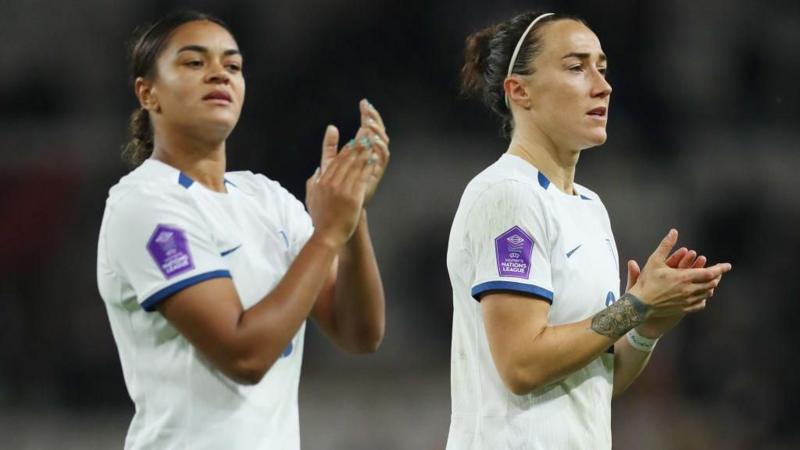Bronze Speaks Out: Rising Abuse in Women's Football Amid Growth




In recent remarks, England defender Lucy Bronze weighed in on a troubling trend shadowing the growth of women's football: an increase in the abuse directed at players as the sport garners wider attention and fandom. While the rise of women's football is widely celebrated, it comes with escalating challenges that need urgent attention from both the public and governing bodies.
Lucy Bronze, a veteran on the field and widely acknowledged as one of the top defenders in women’s football, expressed her concerns about the heightened levels of abuse and scrutiny that players now face. Her comments come at a time when women's football is enjoying unprecedented levels of popularity, thanks in part to significant international events like the Women's World Cup, and increased investment and media coverage.
Bronze’s own career serves as a summary of the sport's evolution over the past decade. She has seen first-hand how the perception and status of women's football have transformed. The sport has shifted from being an overlooked part of football to one that is now embraced and celebrated on a large scale. However, this positive spotlight also has its drawbacks.
As is often the case with increased visibility, women's football has drawn not just fans and sponsors but also critics and, disturbingly, harassers. Social media, a tool that can foster engagement and build community, also serves as a platform for anonymous antagonists to target players. The abuse ranges from personal attacks to invasive comments about their private lives or physical appearances, overshadowing their achievements and the skills they demonstrate on the field.
Lucy Bronze’s observation underscores a broader societal issue, whereby women in traditionally male-dominated fields face undue criticism not just for their professional performance but for simply existing in those spaces. However, within this gloomy narrative, there is a significant ray of hope: the strong, supportive community that women’s football is fostering among players, fans, and allies. Players often speak about the camaraderie and solidarity that exists, not only within teams but across the sport, transcending national rivalries.
This sense of community is crucial, as it forms a line of defense against the negativity and abuse. It is also a reminder of the battles that still need to be fought for women athletes who deserve recognition for their skill and commitment without the burden of abuse.
Moreover, these developments bring to light the critical role of governing bodies like FIFA and national organizations, which are responsible for promoting a healthy sporting environment. Ensuring stringent measures against harassment and abuse on social media and in stadiums is more critical than ever. Initiatives aimed at educating fans and promoting respectful behavior can also shift the culture surrounding the spectatorship of women’s sports.
Team managers, coaches, and fellow male footballers also play a pivotal role. Their public support can help contest the stereotypes and set a tone of respect and equality. Notable male figures in football voicing their support for female players can amplify the right sentiments and perhaps deter negative behavior among fans.
Finally, the media, too, must reflect on their part. Positive and respectful coverage, focusing on the prowess and achievements of players rather than their personal lives or physical appearances, can help change perceptions more broadly. Responsible journalism can educate audiences and possibly mitigate the type of scrutiny that amplifies abusive behavior.
Lucy Bronze’s comments offer an important reflection not just on women's football but on the status of women in sports generally. There is a clear need for systemic changes to not only foster the growth of women’s football but to ensure that it is an inclusive, respectful, and safe space for all players. It’s a shared responsibility, where fans, players, coaches, governing bodies, and media outlets must all push back against abuse and champion the positive spirit, teamwork, and respect that sport should embody.